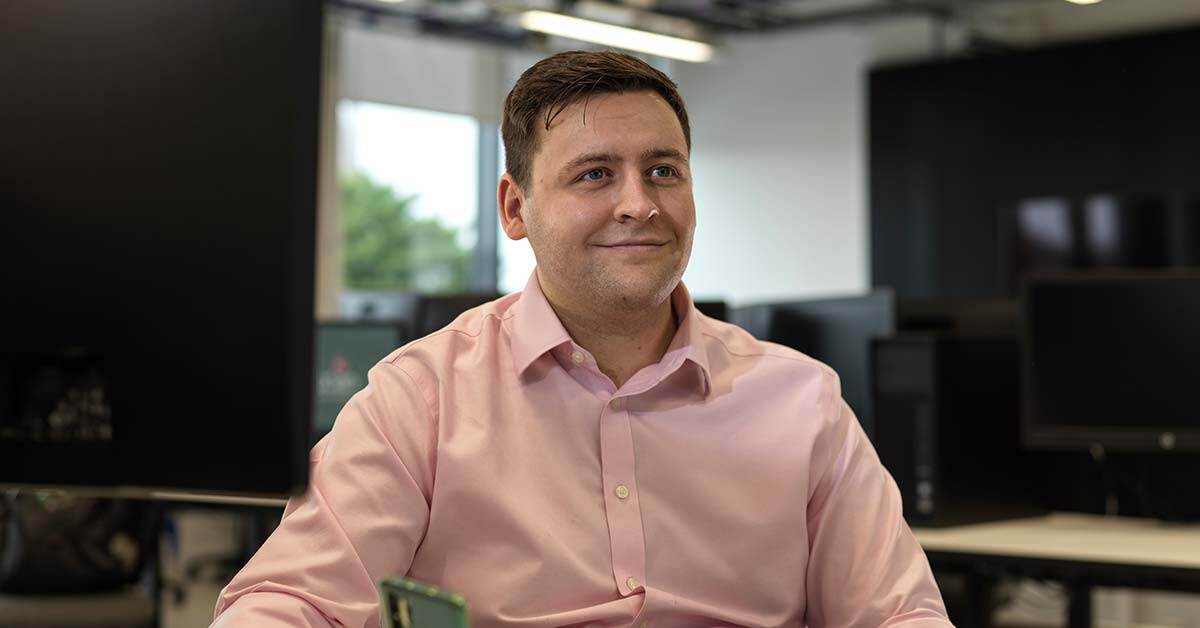Enhancing Healthcare Credentials: A Virtual Q&A
August 2023
Watch event highlights
MSc in Applied Public Health Course Leader Akua Joyce Quao and a current student delve into current events and their impact on public health, as well as programme insights and firsthand experiences.
Our virtual Q&As
Our online, course-specific Q&As are a great opportunity for you to hear first-hand from students, academics and student support staff about how our online, part-time MA and MSc degrees can help you progress in your career.
These are your chance to:
-
Have your questions answered during our live event
-
Hear useful tips and best practices around studying and time management
-
Learn about current trends and hot topics in the field
[MUSIC PLAYING]
Henry Onweani: Critical thinking-- let me use the word critical thinking, very, very important. I always use myself as an example. I think one of the assignments you wrote was on reflection. Anytime I go and read it out, I see the progression I've made within the period I've been in.
You know yourself before you come into the programme. There are marks you set for yourself, and you see yourself, you're able to think wider and understand from day one, they were going to tell you that -- like they used to say, no answer is right or wrong. It's all about how you able to argue it out. And that gives you that baseline from the beginning.
Then in terms of a critique skills, as well, you're able to go through a study-- there are a couple of studies you read. You just read it.
But now when I go back to read it, there are things I'm looking for. I want to look at how did they get their design study, how did they get it, what type of study did they have. That's the idea.
Then the most important thing, as well, I'll tell you is about the time management. That was the scary part of it. So this is at the point you were able to get it very right and were able to balance your study and your job, as well. So that's a lot.
And good communication skills. And that comes with-- I think it comes with more of the tutor, the webinar. If you see way we do the webinar, it's very fantastic. It's not teaching it's interactive, so you must participate. So you have to participate. You must. Because it's always this talk, the arguments, everybody wants to argue at the end of the day. We'll get the writing done. So
I think it's giving me a lot of an improvement in communication skills, critical thinking, time management, and just a lot, I would say, so far. And if I were to compare in my work now, before, I can tell you, I used to run away from paperwork. As a doctor, you just run away, because it's too tedious for you to do a lot of writing.
But all of a sudden, writing become part of me, I volunteer whenever they want to do anything that has to do with auditing, I say, I will join, I will lead the team. But before, I would just shy away, go at the background. So these are what I have learned so far through these studies. And you don't even know where you get those skills as you progress in the models.
But you find yourself, when you reflect back, oh, I can do this now, I can write 4,000 words to express something. And that goes that way. So that's what I can say, it's a progress, it's gradual progress, and you [INAUDIBLE].
Akua Quao:- Many people will be aware of the cost-of-living crisis, although this is very much a phrase that's used quite broadly across the UK. But it goes across countries, because when I speak to people in different parts of the world, they tell me about everything costs so much, this costs so much, money is not enough. And it's the same thing that we're hearing, so it's a global phenomenon.
So the cost-of-living crisis and I think the impact of that is that it widens inequalities. And public health is very interested and very concerned with how do we bridge the gap with these widening inequalities, so inequalities in the sense that someone's not able to access good quality health care, maybe because of where they're located in the country, where they are in the country. So maybe distance might be an issue.
Or it could be around finance. So it's looking at inequalities around all sorts of areas, so it be around employment, it could be around health, it could be around finance. So because we know from the evidence that health is not just affected by what's going on physiologically, it's about other things.
So if one doesn't have enough money to buy the food that we are suggesting people eat, then our public health message is of no use, is of no value.
Are you interested in starting your Masters?
Find out about the people you'll meet and the services available to you
Get more information on course fees, payment plans, and funding options
More resources
See all resources
Online study tips for busy professionals
Balancing full-time work with online studies is possible with the right approach. Discover our top...
Read the story
How to create a workspace for online learning
Uncover the secrets to a productive and motivating study space – from ergonomic essentials to...
Read the story
What is flexible learning?
Explore the advantages of flexible learning, including freedom, accessibility, career advancement,...
Read the story